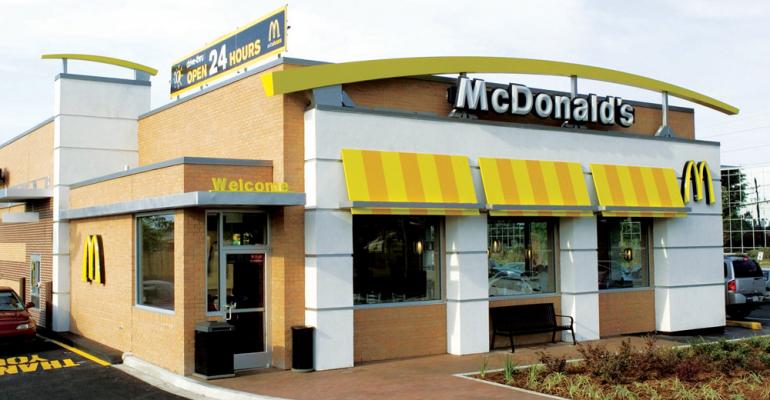McDonald’s Corp. this week took further steps to reduce more potential toxins in its food packaging, setting a 2025 as goal for replacing more items in its supply chain.
The Chicago-based burger giant on Wednesday released the new goals as part of its companywide sustainability framework. The company committed to removing added-fluorinated compounds from its packaging materials globally.
“We’re proud to take another step in our product stewardship journey with our commitment to remove all added fluorinated compounds from our guest packaging materials globally by 2025,” the company said in an emailed statement Thursday.
McDonald’s said that in 2008 it eliminated long chain PFAS, including perfluorooctanoic acid (PFOA) and perfluorooctanesulfonic acid (PFOS), from all guest packaging globally. Between 2013 and 2015, the company eliminated bisphenol A, or BPA, and phthalate chemicals from its packaging.
The fluorinated chemicals have come under increasing scrutiny for their impact on the environment and the body. Per- and polyfluoroalkyl substances, or PFAS, are a family of about 5,000 man-made organic chemicals used in non-stick cookware, fabric stain-protective coatings, fast-food wrappers, microwave popcorn bags, personal care products and firefighting foams.
McDonald’s said its packaging materials are compliant with the Food and Drug Administration, European Union and other regulatory bodies.
“We are continuously monitoring, testing and innovating on all packaging materials in partnership with our suppliers to ensure they are safe for customers and the environment,” a spokesperson said.
Danielle Melgar, an advocate with the U.S. Public Interest Groups federation, said in a statement: “McDonald’s commitment is common sense. Our lunch shouldn’t be wrapped in toxic chemicals. … Other restaurants should follow suit. Continuing to use PFAS to prevent greasy fingers simply isn’t worth the risk to our health and the health of our children.”
In a posting on the sustainability section of the McDonald’s website, the company said that “together with our franchisees, suppliers and industry partners, we invest in research and development of new materials and packaging designs, which fit our customers’ needs for convenience, food safety and sustainability.”
The company said some of its global restaurants have been testing paper straws to replace plastic and running straws-upon-request initiatives.
“During earlier trials, some customers had challenges with respect to the ease of use and durability of the straws, but following continued innovation, testing and learning, we have redesigned them to address these issues,” the company said.
McDonald’s has about 14,000 in the United States and a system of 34,000 worldwide.
Contact Ron Ruggless at [email protected]
Follow him on Twitter: @RonRuggless





